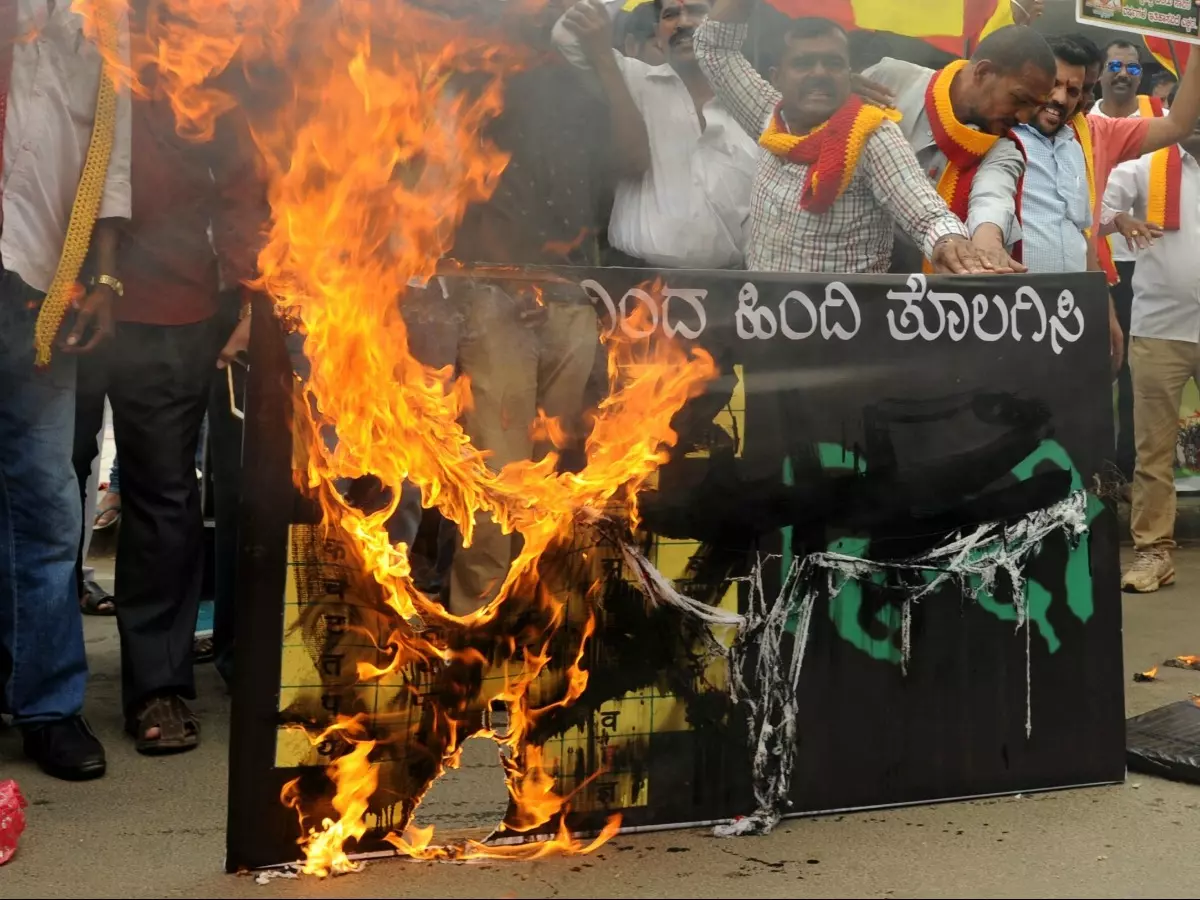Tukde-Tukde Gang Is In Power Says Tharoor As He Joins The Debate Over Hindi Imposition
Former Union Minister and Congress MP from Thiruvananthapuram Shashi Tharoor has joined the ongoing row over imposition of Hindi language. Ayush Ministry Secretary Rajesh Kotecha asked non-Hindi speaking yoga teachers and medical practitioners to leave a webinar after some of them objected to him speaking in Hindi.

Former Union Minister and Congress MP from Thiruvananthapuram, Shashi Tharoor, has joined the ongoing row over imposition of Hindi language.
"It's extraordinary when a Secretary of GoI tells Tamils to leave a webinar if they can't understand his Hindi! If the govt has any decency he should be replaced by a Tamil civil servant forthwith! Is the tukde-tukde gang now in power determined to destroy India's hard-won unity?" Tharoor said in a tweet.
 bccl/ file
bccl/ file
His tweet was in the context of an ongoing controversy, after Ayush Ministry Secretary Rajesh Kotecha asked non-Hindi speaking yoga teachers and medical practitioners to leave a webinar after some of them - mostly from Tamil Nadu - objected to him speaking in Hindi.
"Whoever wants English can leave... I am comfortable in Hindi and would prefer speaking in Hindi," Kotecha was heard saying in a video clip from the event.
However, after the video clip went viral and his actions faced backlash, Kotecha claimed that he was speaking in both Hindi and English during his address and that his words were manipulated.
DMK MP Kanimozhi demanded a Disciplinary action against Kotecha and said that the action "speaks volumes about the Hindi domination being imposed. This is highly condemnable".
 bccl
bccl
In fact, it was Kanimozhi - who has been a vocal opponent of what many non-Hindi speakers view as Hindi imposition by the Central Government - who reignited the debate recently, after she claimed that a CISF official at Chennai Airport asked if the MP was an Indian, when she requested the woman official to speak in Tamil or English.
¡°Today at the airport a CISF officer asked me if 'I am an Indian' when I asked her to speak to me in Tamil or English as I did not know Hindi.¡±
¡°I would like to know from when being Indian is equal to knowing Hindi. #hindiimposition,¡± Kanimozhi said in a tweet.
The CISF which conducted a probe into the incident rejected the MPs allegations but added that it will undertake "enhanced efforts to ensure that personnel and officers who know the local language are increasingly deployed at airports keeping in mind administrative and operational issues."
Language is a touchy affair in most southern states and attempts to introduce Hindi as a link language have always been met with stiff resistance there.
 BCCL/ file
BCCL/ file
A couple of years ago Karnataka witnessed massive anti-Hindi protests after Hindi boards were widely used on Bengaluru Metro and stations.
 bccl/file
bccl/file
The opposition to Hindi even predates independent India and started in late 1930, when Congress formed the government in Madras Presidency and planned to introduce Hindi to Tamils.
The resistance was led by EV Ramaswamy Naicker - better known as Periyar - who went on to form Dravidar Kazhagam, out of which DMK and AIADMK were born.
The opposition against Hindi continued post-independence when the Constituent Assembly decided Hindi as the official language of the country, while English would remain as an official language for a period of 15 years.
As the 15-year term was about to come to an end, Tamil Nadu saw another massive protest which forced the then Nehru government to pass the Official Languages Act 1963, to ensure the continuing use of English.
In 1967 the Official Languages Act was further amended to guarantee the indefinite use of Hindi and English as official languages.
